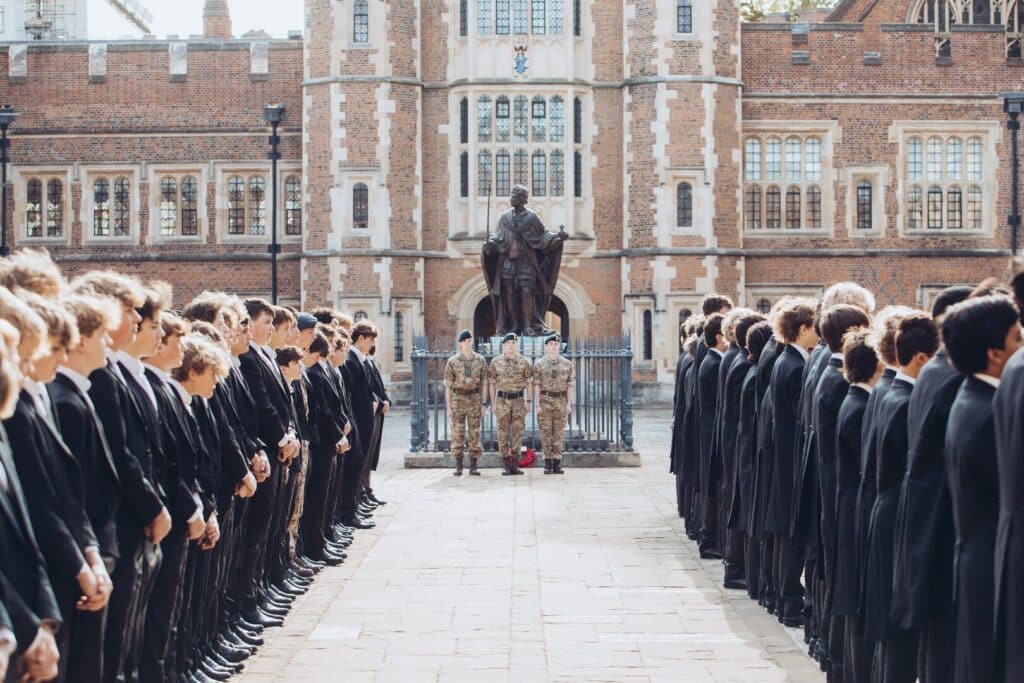Roger was a rare English character: how many Brits would spend a holiday escorting sheep across Spain’s interior? And not many devote time every week to prepare and serve food for the homeless of Central London – which Roger did for several years, right up until the time of his death in 2009
From his prep school, Summer Fields, Oxford, Roger won a King’s Scholarship to Eton. He was a contemporary of Boris Johnson, who spoke of him movingly at a memorial event in February 2010. His Eton years, in College – 1977 to 1982 – were the high point of his much too short life. Eton was where he shone the most. Masters reporting on his progress were quite literally in awe of his intelligence; and were clearly learning from him too! One moment he’d be expounding on science, and the next he’d be writing on Byzantine icons! His life was clearly endowed with great promise.
After Eton, Roger went up to King’s College, Cambridge, where he read History. His time at the University was personally enriching and intellectually beneficial. He delighted in Cambridge’s beauty and culture. For complex reasons he was only able to spend a year there. It was though some years later that he achieved a professional degree in Computer Science from the University of London, through his studies at Imperial College.
Roger joined the Army in 1986, and won a three year commission as an officer in The Royal Green Jackets. He was much esteemed by his men and colleagues who knew they could rely on him. He cut a characterful figure as a scholarly soldier. Particularly formative was his posting to the post-conflict Falkland Islands. After the Army he spent a year teaching English in Madrid. He became a Hispanophile during that time, developing an extensive knowledge of Spain and its culture. His studies at Imperial College then followed. Once employed as a computer programmer, he remained in this profession for the rest of his life, and worked for various London-based companies.
Roger Carless was born in Vienna on 24 February 1964. He was the second son of Hugh Carless, the British diplomat, and Rosa Maria nee Frontini, the Brazilian artist. He grew up partly abroad, and was always in tune with wider outlooks on humanity than the merely rational. Roger loved travel, literature, classical music, and a glass of good red wine. As regards reading – a huge enthusiasm – he was steeped in the Greek and Classics he’d come to love at Eton. He also had a broad appreciation of modern writings – for instance, the work of the Turkish and Japanese novelists. He could read in at least five languages. Despite a short life of only 45 years, he was able to experience and achieve much. Roger had a great gift for friendship – as the numbers at this funeral clearly proved. He was a unique and emotionally honest individual. He continues to be sorely missed, but at the same time goes on inspiring us.
There is now a memorial bench for Roger in the grounds of College – in a secluded spot shielded by a red brick wall, and on the way down to the river. It bears the carved epitaph ‘His mind flowered and his heart was happy’.
Ronnie Carless, brother
June 2013



